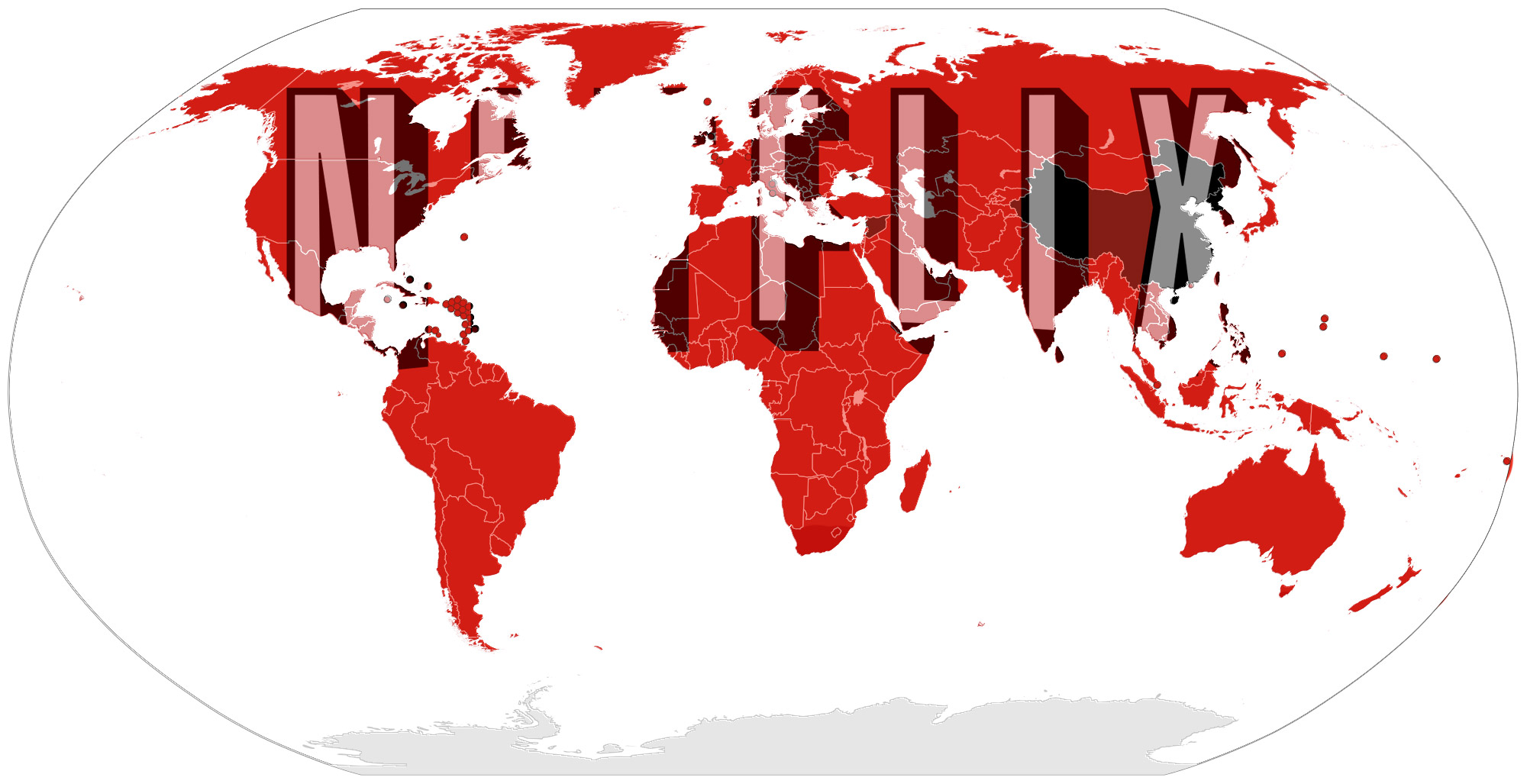Netflix might be a global powerhouse in the online streaming game, but its major success still lies in the U.S., where its content is richest and its pricing is competitive. Elsewhere in the world though, where that isn't always the case, it's growth is stuttering.
Last week it was reported that user growth for the service had been lower than expected thanks to reduced interest from consumers overseas. That lead to a fall in Netflix share prices of fifteen per cent, which is quite a chunk of change when you're worth more than $2 billion.
While growth is still reasonable in many European countries, where content is at least somewhat comparable with the U.S., in Asian markets where huge swathes of potential customers live, Netflix has really struggled. Regulatory barriers have made entry into China problematic and for many people the costs involved with a Netflix subscription are simply proving too expensive, as per TechCrunch.
Netflix is available almost everywhere, but it's struggling to make an impact in Asian markets
Netflix is taking steps to try and combat this issue. It's still working on improving licensing deals around the world to make content from the U.S. more readily available and it's also commissioning shows for production in many other countries, like India, but that will take some time to film and build an audience.
Part of its problem is that it's no longer the only major player in the streaming game. Amazon's Instant Video and Prime options have hauled in a lot of viewing eyeballs and there is talk that Disney may go it alone with its vast library of content. There are certainly a lot of parents that would pay a pretty penny to have easy access to everything Disney has to offer.
Netflix may soon offer different pricing options in various regions though, which will help – though it will have to make sure it's stamped out VPN usage first.
Another problem Netflix has to contend with though is infrastructure. Streaming HD video requires a lot of bandwidth and in countries where ready access to high-bandwidth, high-data-cap connections is uncommon, that will prove a difficult barrier for Netflix to hurdle.
Discuss on our Facebook page, HERE.
KitGuru Says: If you don't have a Netflix subscription, how come? Is it a content issue? A pricing issue?
 KitGuru KitGuru.net – Tech News | Hardware News | Hardware Reviews | IOS | Mobile | Gaming | Graphics Cards
KitGuru KitGuru.net – Tech News | Hardware News | Hardware Reviews | IOS | Mobile | Gaming | Graphics Cards




I am getting paid in the range of $6,000-$8,000 a month from freelancing online. For anyone prepared to work simple at home work for several hours /a day from comfort of your home and get solid income in the same time… Try this gig SELF40.COM
Streaming services just show that current licensing system is completely outdated. Why should a user in the UK have access to other content than one living in The Netherlands, Vietnam, or the US? It’s different from TV broadcasting where you indeed cater to a certain sized audience depending on each country, but the internet has rendered that issue mute. Streaming services should be able to get worldwide licensing options from distributors. That would make it cheaper which is good for Netflix, a lot more consumer friendly as there’ll be more choice, and it’ll reduce piracy. Seems like a win-win-win for everyone involved. Well, except TV networks, but that’s like complaining that cars were bad for the horse carriage business.
Am…..price and content.
They are raising prices and lowering content…..so what would you expect?
(Blocking VPN accress counts as lowering content too.)
Nice experiment, but like most virtual monopoly’s they think they know better than their customers, take them for granted and screw them over.